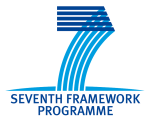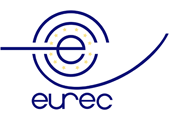menu
- Home
- National Information
- EC-Activities
- EUREC-Activities
- Legislation
- Training Materials
- Literature
- Events
- Newsletter
supported by:

Eurecnet - Training material details
Training material details
Research ethics training curriculum
Author(s): Rivera, Roberto; Borasky, David; Rice, Robert; Carayon, Florence
Document type: CD-ROM, Collection of slides, Online material
Year: 2001
Pages: 367
Source: Other: Family Health International (non-profit organization)
URL: http://www.fhi.org/
Language(s): English, French, Spanish
Classification
National background: United StatesCategory: Non-EU Training Material for Research Ethics
Subject areas: Conflict of interest; Ethical research (fraud and misconduct); Human experimentation
Focus: Main focus; Indicate area of research dealt with: human experimentation
Content: Case studies; Important codes; Legal background; Normative reflections
Issues touched: Autonomy, respect, informed consent, subjects unable to consent, role of representatives; Beneficence, non-maleficence, risk for the subject; Justice, benefits/burdens, research without benefit for the subject, placebos/standard therapy; Protection of privacy, data protection, biological material; Vulnerable groups, soldiers, prisoners, pregnant women, elderly people; International research, research in developing countries; Social impact of research, economic benefits, risks for third parties; Social background of research, conflicts of interest, researcher vs. doctor, commercialisation; Fabrication, falsification, plagiarism; Ethics committees, research protocols
Audience: General/not specified
Classification remarks: The curriculum is devised both for self-study and for group training. It consists of 5 sections: "Contents" (summary slides, explanatory text, learners notes containing suggestions for teachers/questions for learners), "Case Studies" (8 cases plus questions and answers), "Evaluations" (pre-tests to assess existing knowlegde, post-tests to assess learning results, answer keys to both), "Slide Masters" (full-sized copies of the summary slides from the first section) and "References" (links to 17 important organisations, 12 selected books/arcticles, DHHS-, CIOMS-, WHO-Guidelines, Helsinki-Decl.,Belmot-Rep. In full).
Estimation
Theoretical quality remarks: The quality will very much depend on the use of the material in a course, i.e. on it's presentation by a teacher. With respect to self-study, the quality is harder to assess, especially as the explanatory texts to the slides often hardly do more than reformulate the notes on the slides in full sentences. However, the material can be a good basis for a high-quality course.Didactical quality: Didactically prepared material
Didactical quality remarks: Comprehensibility will mostly depend on the presentation in a course.
Overall estimation: excellent
Estimation remarks: As the explanatory texts to the slides are rather short, this material is probably not too well-suited for self-study. However, in designing a course a teacher may find highly valuable and helpful material in this collection.
